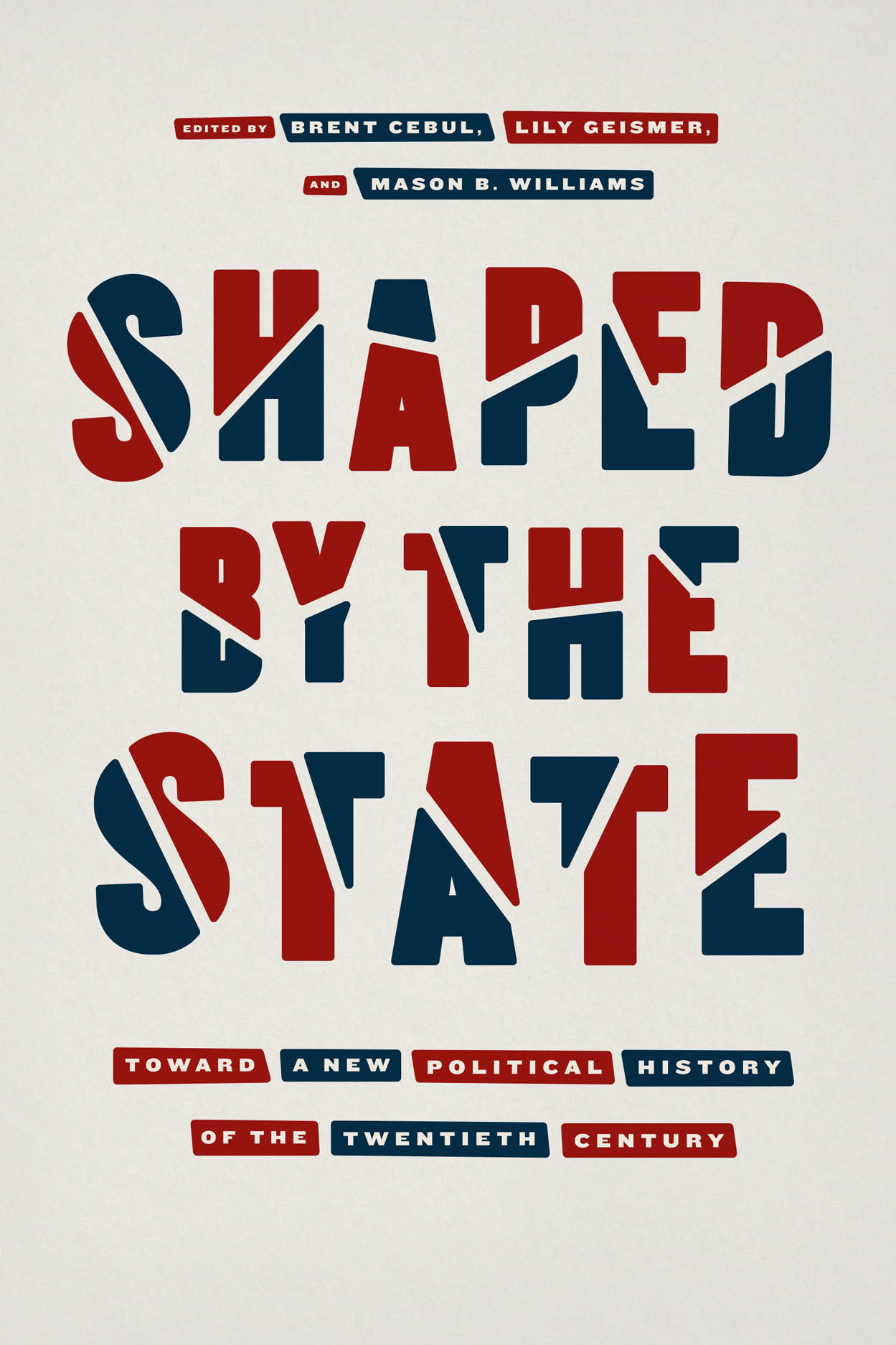A description from the Press:
American political history has been built around narratives of crisis, in which what “counts” are the moments when seemingly stable political orders collapse and new ones rise from the ashes. But while crisis-centered frameworks can make sense of certain dimensions of political culture, partisan change, and governance, they also often steal attention from the production of categories like race, gender, and citizenship status that transcend the usual break points in American history.
Brent Cebul, Lily Geismer, and Mason B. Williams have brought together first-rate scholars from a wide range of subfields who are making structures of state power—not moments of crisis or partisan realignment—integral to their analyses. All of the contributors see political history as defined less by elite subjects than by tensions between state and economy, state and society, and state and subject—tensions that reveal continuities as much as disjunctures. This broader definition incorporates investigations of the crosscurrents of power, race, and identity; the recent turns toward the history of capitalism and transnational history; and an evolving understanding of American political development that cuts across eras of seeming liberal, conservative, or neoliberal ascendance. The result is a rich revelation of what political history is today.Via the editors, we also have abstracts for several chapters that seem likely to interest to LHB readers:
The “Black Tax”: Race, Property Assessments, and the Making of the Neoliberal City
Andrew W. Kahrl
Andrew Kahrl focuses on state and local tax policy administration in Chicago and uncovers a variety of bureaucratic and administrative practices used to punish and exploit the poor and politically disfranchised. Providing a new way to think about the tax politics of the 1970s, Kahrl maps unseen sites of discrimination and chronicles the double injury that myths about black tax delinquency and the undemocratic state have perpetuated: abetting a misguided radical anti-tax, pro-market, and anti-government mood that infects both parties and which simultaneously enforces a locally-based, regressively redistributionary tax regime.
Clearing the Air and Counting Costs: Shimp v. New Jersey Bell and the Tragedy of Workplace Smoking
Sarah E. Milov
Sarah Milov offers a different view of the relationship between the state and citizens seeking new forms of political and workplace rights in the 1970s. Focusing on the battle for smoke free workplaces, Milov shows how activists often had to go to war with the unions to which they belonged – unions that otherwise bargained for worker health and safety. Milov uncovers the complex legal, gendered, and bio-political forces that could fuse the interests of worker-activists with corporations concerned primarily with efficiency. Ultimately, Milov argues that the workplace battle she uncovers was less a factor in the eclipse of the New Deal order and was instead a legacy of New Deal era “law, administration, and ideas about health and the environment [that] had expanded the realm of the contestable.” Crucial continuities, in other words, played an overlooked role in creating labor’s decade of crisis.
A Carceral Empire: Placing the Political History of US Prisons and Policing in the WorldA few blurbs:
Stuart Schrader
Stuart Schrader suggests that looking beyond national boundaries can provide new ways of understanding how the New Deal state evolved over time and ultimately generated what is perhaps the fundamental social and political crisis of our time: the crisis of black, male incarceration. Schrader examines the literature surrounding the “carceral state” and spotlights how the turn toward transnationalism or “the US in the world” has been notably absent. By tracking institutions both inside and outside the state, including law-enforcement agencies and professional organizations, Schrader demonstrates the need for close empirical attention to the transnational dimensions of the carceral state, suggesting that key aspects of the construction of a postwar US empire have come home to roost.
“This is an original and unique anthology whose contributions offer theoretically sophisticated reassessments of the subfield of political history. Both capacious and generative, I know of no other work that comes close in offering so many fresh interpretations of twentieth-century US history and revisions of twentieth-century US historiography. The essays are well written and engaging, new and enlightening.” -- Peter James Hudson
“Shaped by the State brings together a valuable collection of reports from the borderlands where social, cultural, and political history intersect—and reinvigorate—each other.” -- Daniel RodgersMore information is available here.
